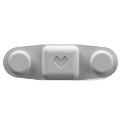What is RPM?
In the past, health care providers were only paid when a patient visited the practice office. However, new billing rules now allow providers to bill for monitoring a patient at home using remote devices. This creates better outcomes for patients and new revenue streams for practices.
Medicare’s Remote Patient Monitoring program helps practices like yours monitor your high-risk patients by providing them with hardware at no cost and then paying your practice to review the data. The program is live and Medicare is actively reimbursing.
Remote Patient Monitoring allows physicians to view continuous patient health data and improve patient outcomes by preemptively managing patient care before episodic care events occur. Through an RPM platform, providers can prescribe health monitoring devices such as blood pressure monitor, blood glucose meter, digital scale, pulse oximeter, spirometers, and digital thermometers.

RPM is primarily used for patients with chronic conditions such as diabetes, CHF, hypertension, obesity, ESRD and COPD.
Whenever patients use their RPM devices, providers will receive patient health data and population health alerts which provide real-time information when at-risk patients’ results are out of a defined range. Remote Patient Monitoring alerts providers when patients are out of compliance, enabling a provider to intervene with the goal of avoiding expensive, episodic care.
Doctors and nurses recommend devices that capture, store, and transmit physiological data about their patients and then review the data monthly to ensure patients are compliant.
For practices that are trying to keep all their personnel on the payroll, RPM gives them a revenue producing role, while also insuring patients are receiving higher quality care.
Alternatively, the review of this data may be outsourced to clinical call centers.
This is called Monitoring as a Service (MaaS). Staffed by RNs or MAs, they work independently to investigate trends, reduce false escalations, and give you more time to support in-office patients. MaaS assures follow up with those who have abnormal or heightened results, and contact patients who have missed readings to help your practice maximize each patients value.
Different RPM providers have different call center personnel.
Some are RNs, others use MAs. This will be important in your RPM vendor selection as you determine how much of the clinical role will be outsourced.
Patients enrolled in the program must have at least one chronic condition and patient consent is required for remote patient monitoring services.
When a Medicare patient receives their medical device, it’s at no cost to them, fully configured, and ready to use out of the box. Most RPM vendors provide equipment support via phone, so the practice is free of technical issues.

803.766.4300
RPM Carolinas
1237 Gadsden Street Suite 200-K
Columbia, SC 29201
© Copyright 2022 RPM Carolinas. All Rights Reserved.
Legal | Privacy Policy
Site Implemented by 18 Street Design







